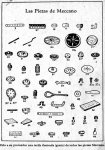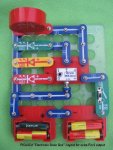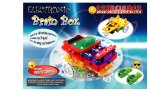Hi,
I have limited experience with Picaxe and I want to work on some projects with my sons who are 7 and 8 years old. I've got them some Meccano so we can build robots etc. I thought we could start by building a Pinball machine.
I know that this site is purely for Picaxe but I used to work in a school where a 'new competitor' was trying to sell the virtues of their educational version. I would like to know
-what the advantages of Picaxe are over others?
-I will no doubt need some advice on the electronics side and the documentation for this 'other' IC is non-existant (one reason to use picaxe i suppose!) But I wondered if the electronics side is the same regardless of which IC you use
-I'm mainly interested in using servos, step motors and solenoids is this easy enough with picaxe?
-Is circuit wizard enough to program in picaxe?
Thanks in advance
G
I have limited experience with Picaxe and I want to work on some projects with my sons who are 7 and 8 years old. I've got them some Meccano so we can build robots etc. I thought we could start by building a Pinball machine.
I know that this site is purely for Picaxe but I used to work in a school where a 'new competitor' was trying to sell the virtues of their educational version. I would like to know
-what the advantages of Picaxe are over others?
-I will no doubt need some advice on the electronics side and the documentation for this 'other' IC is non-existant (one reason to use picaxe i suppose!) But I wondered if the electronics side is the same regardless of which IC you use
-I'm mainly interested in using servos, step motors and solenoids is this easy enough with picaxe?
-Is circuit wizard enough to program in picaxe?
Thanks in advance
G





